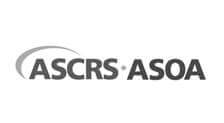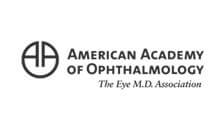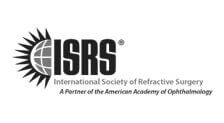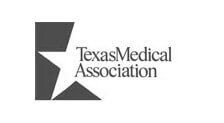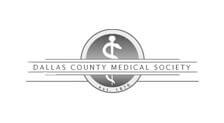LASIK Eye Surgery in Dallas, TX
If you’ve ever thought about having LASIK, you’re certainly in good company.
Freedom from the hassles of glasses and contacts is something many people think about on a daily basis. If you wear visual aids, you may already know how frustrating they can be.
LASIK is a laser vision correction procedure that provides you with the visual freedom you’ve always wanted. Here at Carter Eye Center, Dr. Carter performs LASIK and changes our patient’s lives!
What is LASIK?
LASIK is a type of laser eye surgery that treats vision problems caused by refractive errors. A refractive error is when your eye doesn’t bend light properly as it comes into your eye. LASIK eye surgery from our Dallas-Fort Worth team can help with nearsightedness, astigmatism, and farsightedness.
Who is a good candidate for LASIK?

Your eye doctor will consider several factors to decide if you are a good candidate for LASIK. They will consider:
Your prescription
Only certain prescriptions fall into FDA-approved treatment parameters. If your prescription is too strong, LASIK isn’t right for you.
Your age
To receive LASIK, you must be at least 18 years old. Even though you have to be at least 18, many LASIK surgeons prefer that you are in your mid to late twenties.
Until you are in your mid-twenties, your eyes and prescription strength are continually changing. There is no point in getting LASIK if your eyes are going to change after you get it.
Your eye health
You must have generally healthy eyes to undergo LASIK. That means you cannot get LASIK if you have cataracts, glaucoma, or severe dry eye syndrome. If your dry eye symptoms are under control, there’s a good chance that you can have LASIK at a later date.
Your prescription stability
To be eligible for LASIK eye surgery at our Dallas-Fort Worth clinic, you must have a prescription that hasn’t changed for at least a year or more. If your eyes are unstable, then getting LASIK doesn’t make any sense.
You are in good health
If you have certain autoimmune conditions like diabetes, Sjogren’s syndrome, or rheumatoid arthritis, you won’t be a good candidate for LASIK. These conditions make it more difficult for you to heal after a surgical procedure like LASIK.
Your current medications
If you are currently taking certain medications like corticosteroids, you may not be a good LASIK candidate. Make sure to let your eye doctor know about all medications you take during your LASIK consultation.
Your cornea
LASIK works by reshaping your corneas. If your corneas aren’t thick enough, it is unsafe to have LASIK.
Your eye doctor will discuss LASIK alternatives with you if your corneas are too thin for LASIK.
If you are pregnant, nursing, or planning to become pregnant
Hormones have a significant impact on your eyes and your prescription strength. During pregnancy and nursing, your hormones can change dramatically.
These changes can affect the shape of your cornea, as well as the prescription of your eyes. You cannot be pregnant or nursing during your LASIK procedure or the recovery period afterward.
How do you prepare for LASIK?
To have LASIK, you must have a LASIK consultation. During this consultation, your eye doctor will ask you questions about your medical history and lifestyle.
They will make sure you meet all the above criteria before they sign off on your LASIK procedure. Then they will test your vision, measure your pupils and corneas, and make sure you don’t have any other eye issues.
If your eye doctor determines you are a good candidate for LASIK, they will give you the option to schedule your procedure. In the days leading up to your procedure, you will need to stop wearing contacts. Your eye doctor will provide you with a schedule and other recommendations.
How does LASIK work?
LASIK eye surgery with our Dallas-Fort Worth professionals is an outpatient procedure performed at your eye doctor’s office or an off-site surgical center. Your surgeon will give you numbing eye drops and put an eyelid holder (called a speculum) and a suction ring on your eye.
These devices ensure you don’t blink or move during the procedure. Next, your surgeon will use a laser to create a small flap in the tissue of your cornea. They will fold this flap back and reshape your cornea beneath it.
The reshaping of your cornea is what corrects your vision. At the end of the procedure, your surgeon will smooth the flap so it can heal itself during your recovery period. The entire LASIK surgery takes 10 minutes or less per eye.
What is the recovery process like after LASIK?
On the day of your LASIK procedure, don’t make any other plans. You are going to need a friend or family member to drive you home. Your eyes might feel scratchy or burn after the numbness wears off, but you shouldn’t be in too much pain.
Recovery is generally fast, and you should be able to get back to your normal activities in a day or two. But be sure to avoid rubbing your eyes or wearing eye makeup for the first week after having LASIK.
Do not play contact sports for the first month. Make sure to follow all instructions from your eye doctor and attend all follow-up appointments for the best results.
Does LASIK have any side effects?
It’s common for patients to experience mild side effects after they have LASIK. These might include dry eyes, double vision, or seeing halos around lights for a few weeks.
Each patient experiences different side effects to varying degrees of severity.
Does LASIK have risks?
LASIK is not a dangerous or high-risk procedure. Like any surgical procedure, however, it does have potential complications.
Side effects like dry eyes, blurry vision, and light sensitivity are common. In rare cases, you could get an infection. The best way to avoid potential complications and risks is to follow all your eye doctor’s instructions before and after you have LASIK.
Is LASIK expensive?
Insurance companies define LASIK as an elective procedure. They do not cover it because it is not considered a medically necessary procedure.
This means you need to pay for LASIK out of pocket. Luckily, Carter Eye Center offers financing options if cost is a barrier for you.
Think about how much glasses, contacts, and all other visual accessories and necessities cost you each year. We find that most people average $500 per year on eye care needs.
Since LASIK can greatly reduce your use of contacts or glasses, you will be saving that money every year. LASIK pays for itself in eye care savings for most patients who use financing in as little as three years.
LASIK FAQ
Every person who is interested in LASIK has questions. It’s a natural part of the process and we welcome them!
LASIK Eye Surgery in Dallas-Fort Worth
Didn’t see your question? No worries. Serving the Dallas areas with premier LASIK surgery, schedule your LASIK consultation today and we will be happy to answer any question you have.
LASIK Technology
Dr. Carter is committed to providing the latest proven technology for every step of your LASIK journey.
This starts with testing for candidacy. Advanced CustomVue LASIK offers the ultimate avenue for safety, precision, and great vision results. CustomVue, a Wavefront-guided treatment, allows Dallas residents to get the benefit of all the latest vision technologies rolled into one highly customized procedure.
Unlike traditional LASIK measurement methods that simply measure the curvature of your cornea, Wavefront enables Dr. Carter to capture even the finest points of your vision characteristics. With this highly detailed level of measurement, we are able to treat patients who may not have been LASIK candidates before.
Next up; the iFS IntraLASE laser. Thanks to this incredibly advanced laser, our LASIK procedure is simple and easy. The procedure is done entirely with a laser; no blades whatsoever. On top of that, the biggest advantage is that the iFS IntraLASE laser works incredibly fast, which means faster recovery and even lower risks.
All this technology combines to create a procedure that is as unique as you and your eyes. Ask us about all-laser LASIK at your consultation.
5 Things to Expect After LASIK Surgery
Surgery always sounds scary. The thought of having to spend long periods of time recovering while you cope with the pain of healing and the possibility of complications can make anyone think twice about whether or not the surgery is actually worth it.
However, LASIK is widely regarded as one of the safest and most successful surgeries that is performed, and recovery is generally a fairly easy experience. The overwhelming majority of patients end up with 20/20 vision or better following the operation and are very rarely plagued with any serious complications.
Recovering from LASIK is a very important thing to discuss during your consultation, though it is usually a very simple process. Recovery starts right after the surgery and can last up to six months, though it becomes significantly easier after just a couple weeks. Here are a few things to know about LASIK recovery before you have the procedure.
1: You will need a ride home.
It may seem obvious, but nonetheless, it is important that you have a ride arranged to take you home as you will not be able to drive. Whether that ride is from a friend, a family member, or a taxi service is up to you.
2: You will rest for about 15 minutes after the surgery.
After going through LASIK, you will need to briefly rest while your eyes begin to become accustomed to their new way of seeing. You will most likely have to wait in the operating chair before the doctor releases you.
3: Within 30 minutes the anesthetics will have worn off.
Your eyes are numbed with special eye drops during the surgery. Once the anesthetic loses its power, you may notice a dull burning and discomfort in your eyes. This is normal, but any severe pain during any stage of recovery should be reported immediately. This could be a sign of complications after LASIK.
4: You will have a follow-up appointment within the first 2 days of recovery.
This will allow the doctor to check for any hard to spot problems, as well as monitor your progress. It is very important to attend this checkup, as well as any others that may be scheduled. It is much easier to treat a problem before it gets out of hand, so early detection is crucial.
5: You will have to be extra careful with your eyes for several weeks.
Your eyes will be in a fragile state for a few weeks following the surgery. Part of the LASIK treatment is creating a hinged flap in your cornea that is lifted and then replaced. This flap can be prone to lifting and tearing off, which makes it very important for you to resist rubbing your eyes. Using eye drops can help with the discomfort, even if your eyes don’t feel dry. You will also need to avoid getting water and debris in your eyes as they will be more susceptible to infection. In general, you should not swim, lift heavy objects, play rough sports, or wear makeup for a few months. Other limitations will be discussed during the consultation.
There’s no doubt that recovering from LASIK is inconvenient, but you’ll hardly be able to think of it when you consider all of the countless ways your life will improve without the need for glasses! Ready to schedule your LASIK consultation with Carter Eye Center? Contact us today!
LASIK Alternatives in Dallas
Not a Candidate? Not a Problem
Even if you’re not an ideal candidate for LASIK eye surgery at our Dallas-Fort Worth vision cener, there’s no need to worry! At Carter Eye Center, we have several other vision-correcting options for improved vision with reduced dependency on glasses or contacts.





